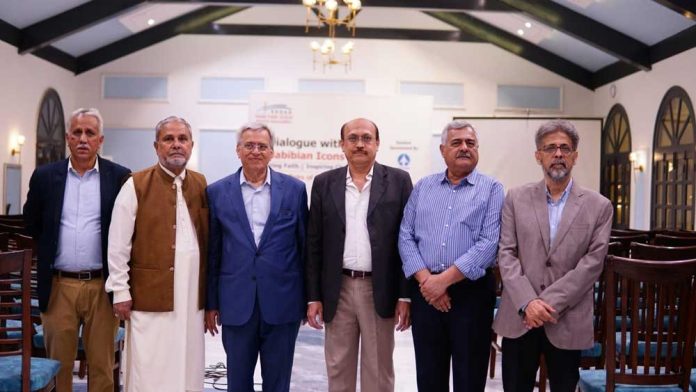
Karachi – October 08, 2024: Sindh’s education system is in urgent need of political attention, stated Rear Admiral (Retd) Syed Ahmed Baqar during a dialogue with Habibian Icon at the Gymkhana Club in Karachi. Rear Admiral (R) Baqar expressed concerns about the majority of the province’s population living in poverty and depending on nonprofit organizations for basic needs. He stressed the importance of producing scientists to drive national progress, as seen in countries like Britain and Japan. Baqar criticized the Sindh government’s low social development indicators , urging them to resolve the education crisis. He emphasized that discipline and commitment should be top priorities for the province’s leadership to ensure lasting change.
During the event, Baqar highlighted the importance of empowering youth through skill development and aligning efforts with the United Nations’ Sustainable Development Goals (SDGs). He noted that investing in the youth is essential for building a sustainable future and transforming education through innovative online learning platforms that provide affordable access to digital resources.
Younus Dhaga, Former Caretaker Minister of Sindh for Finance, Planning, and Development, second keynote speaker at the event. He expressed his concern over Sindh’s low socioeconomic development, which has been seen from decades of misgovernance, corruption, and neglect. Dhaga pointed out that Sindh’s education performance is below the national average, scoring 51.5 compared to the national score of 53.4. No districts from Sindh are ranked among the top ten in the country, and even Karachi, the province’s largest city, is absent from the list.
Dhaga highlighted poor performance in key districts where education outcomes remain below expectations.Key districts such as Larkana (52.7), Shaheed Benazirabad (50.2), Jamshoro (53.9), and Umerkot (49) perform below expectations, reflecting a lack of commitment from leadership.
He emphasized that despite receiving the highest public funding and international donor support, Sindh’s leadership has failed to address the critical needs of its education system.
Additionally, Dhaga raised concerns about Sindh’s population crisis, with 52% of the population—approximately 130 million people—remaining illiterate and unskilled. He questioned how the province could progress with such a vast uneducated population and criticized the government’s recent creation of 30,000 jobs for Naib Qasids as a vote-bank manoeuver rather than a solution to the unemployment crisis.
Both Baqar and Dhaga called for immediate political leadership to resolve Sindh’s public crisis and urged the government to prioritize education reform, youth empowerment, and renewable energy initiatives.They concluded the event with a message of hope, stressing that investing in youth and education is essential to securing a prosperous and sustainable future for Sindh.
In attendance were notable figures, including Saeed Allahwala,President HPSAA , Mehtab Haider, Secretary General , educationist Azfar Rizvi.Principal Habib Public School and others. The event served as a platform for knowledge sharing, collaboration, and discussions on the way forward for Sindh’s economic development by means of strengthening the education system.
To Keep Updated Visit & Follow our Facebook Page Or Our Website




